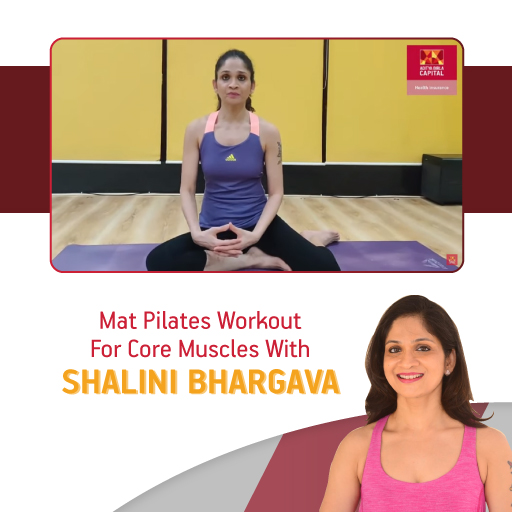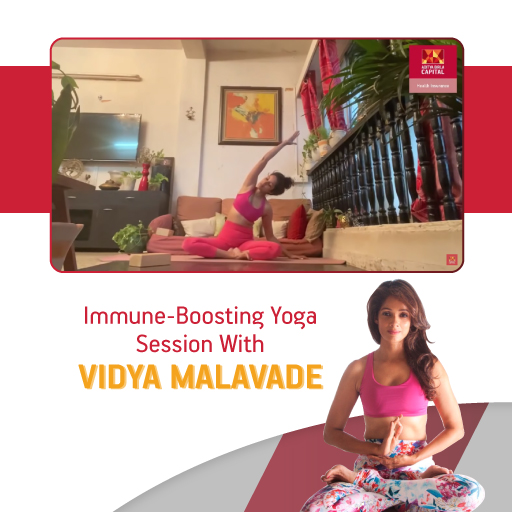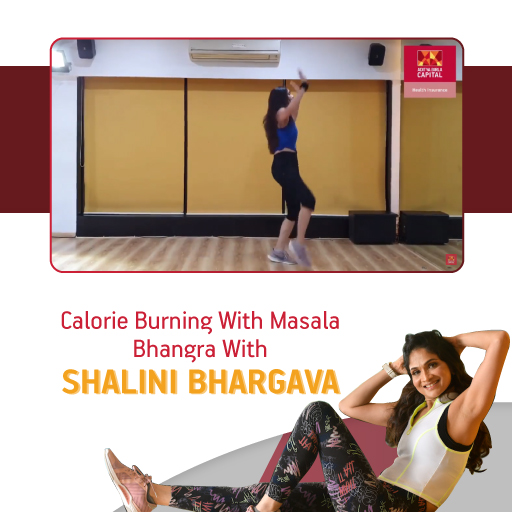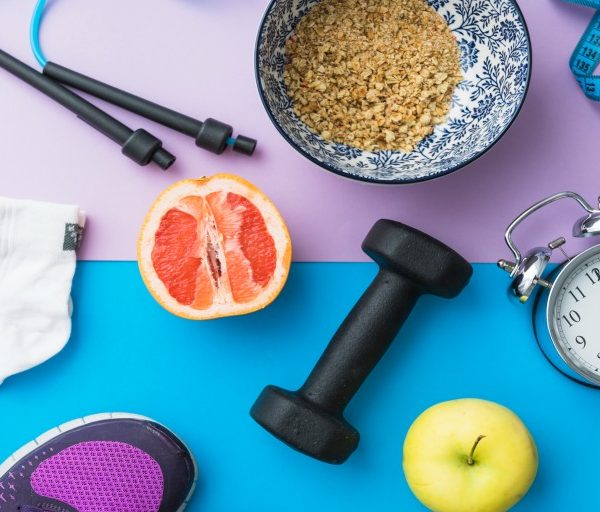
Mat Pilates is an excellent way to build core strength that can be added to every workout routine. This session is specially developed with beginners in mind so that everyone can join in and enjoy the benefits of getting healthier and toning their muscles.
What you need to know:
- What is a mat Pilates workout?
- How does mat Pilates workout help core muscles?
- Types of Pilates workout
- Benefits of Pilates exercises
What is a mat Pilates workout?
Pilates workout utilizes controlled and precise movements focusing on proper breathing and alignment. The core muscles of our body are involved in almost every Pilates movement, providing a solid foundation for overall body strength.
Mat Pilates workout is a method of exercise developed by Joseph Pilates in the early 20th century, designed to improve physical strength, flexibility, posture, and mobility. Mat Pilates exercises are performed on a padded mat on the floor, using one’s body weight as the primary source of resistance. Here is a detailed step-by-step instruction for practising mat Pilates:
- Lateral breathing: Sit comfortably with straight back and fingers on your lower ribs. Also, keep your head straight. Focusing on a particular point in a far-off direction can help you keep your head straight. Inhale while expanding your ribs, and exhale while contracting.
- Arm circles: After breathing exercises, move on to warm-up exercises like arm circles and protraction and retraction of shoulder blades. These exercises help you get ready for the next step of your workout.
- Sternum drops: Strength-building exercises like sternum drops and opposite arm-leg reach come in the middle part of the workout. Stay steady and gradually improve your pace while doing these exercises. Move on to elbow wides and tricep push-ups to exercise all muscles of your arms. These exercises and plank and reverse plank are also practical in building core strength.
- Relax: Return to lateral breathing while finishing this workout routine and relax. This helps your body transition from the active state to the relaxed phase. After this workout, you can feel energized and ready to take on the day’s challenges.
Remember not to stress yourself too hard. Consult your doctor if you feel uneasy while performing any of the Pilates workout exercises.
How mat Pilates workout help core muscles?
There are six fundamental principles to Pilates, essential for strengthening your core muscles.
- Centering: This is all about bringing awareness to the core muscles — the area between your lower ribs and pubic bone. This area (your core) is the foundation of all Pilates exercises.
- Concentration: Giving each movement your full attention is vital to getting maximum benefits from each movement.
- Control: Aim for total muscular control. Perform body movements slowly and steadily.
- Precision: Focus on proper body posture alignment and core engagement to reap the maximum benefits.
- Breath: Coordinate your Pilates exercises with your breath; one movement on the inhale, one movement on the exhale.
- Flow: Try to make each Pilates exercise as fluid as possible, flowing with your breath.
Types of Pilates workout
Here are some of the best Pilate workout exercises at home that you can practise daily:
- Pilates curl: This Pilates curl exercise primarily targets the abdominal muscles, helping to strengthen and tone the core muscles. This posture enhances core stability and supports a healthy spine.
- Roll-up: The roll-up exercise is a challenging movement that promotes spinal flexibility. It helps improve core strength, mobility, and body control.
- Hundreds: This exercise is an easy Pilates workout move that focuses on core activation and endurance. They strengthen the abdominal muscles, improve core stability, and increase body awareness.
- Kneeling cat: This Pilates exercise involves kneeling between neutral and rounded spine positions.
Benefits of Pilates exercises
Here are some benefits of practising Pilates workouts daily:
- Increases flexibility: Regular Pilates can improve flexibility by lengthening and stretching the muscles, allowing for a greater range of motion in joints.
- Enhanced strength and endurance: Pilates workouts incorporate resistance and bodyweight exercises that help build strength and endurance in various muscle groups, resulting in a toned physique.
- Improves balance and coordination: Pilates exercises improve balance, coordination, and overall body control. Individuals of all ages, particularly older adults, can benefit from it.
- Reduces the risk of injuries: Pilates emphasizes controlled movements and proper form, reducing the risk of injuries. The focus on core stability also helps protect the spine and joints during physical activities.
- Reduces stress: Pilates workout techniques incorporate deep breathing and relaxation techniques, promoting stress reduction and a sense of relaxation.
- Improves fitness and sleep quality: Regularly practising easy Pilates workout exercises contributes to overall wellness, combining strength, mobility, cardio, balance, and body awareness. It also improves energy levels and sleep quality.
Tips for practising mat Pilates safely
If you are wondering how to do Pilates at home, here are some common tips you can follow to make the most of your workout:
- Adapt the workout to your body – Instead of giving up on a challenging exercise, you can try a more straightforward modification of the same activity to get you started.
- Be patient – Pilates will strengthen your muscles and, over time, help with your weight management routine.
- Don’t skip levels – Mastering the basics of Pilates can help you learn the correct form for each exercise and prevent injury. That’s why you should avoid rushing to the advanced levels workouts.
- Exercise regularly – Since Pilates is a low-intensity exercise, staying persistent and exercising regularly is essential. It is most effective when you practise Pilates in regular sessions daily.
- Focus on your form – Maintain the proper posture to gain all the health benefits of this exercise. This rule is valid for most workouts but applies specifically to Pilates.
Pilates isn’t just about physical strength but also about alignment, balance, and a mind-body connection that fosters mindfulness. As you continue to practise these exercises, you will witness a transformation in your core strength, overall posture, flexibility, and sense of well-being.
Stay tuned to the Activ Living Community. Keep up to date with the latest health tips and trends through expert videos, podcasts, articles, and much more in nutrition, fitness, mindfulness, and lifestyle conditions like Asthma, Blood Pressure, Cholesterol, and Diabetes.
You may also be interested in the following blogs:
Popular Searches
How to lower blood pressure | Fruits good for liver | Unhealthy foods | Ragi Benefits | Basal Metabolic Rate | Acupressure points for High Blood Pressure | Ayurvedic medicine for blood pressure | How to control cholesterol at home | Homeopathy for Asthma | Biological Age | Home remedies for TB | Natural beta blockers | Negative effects of internet | Types of walking | Blood pressure calculator | Blood sugar calculator | BMI Calculator





 1800-270-7000
1800-270-7000










